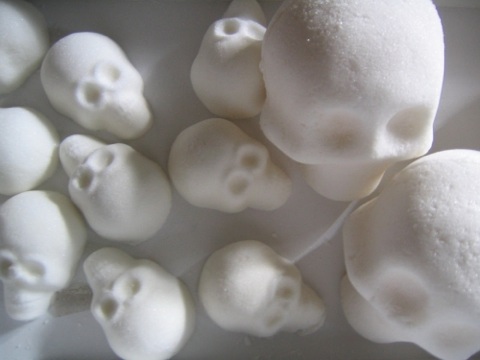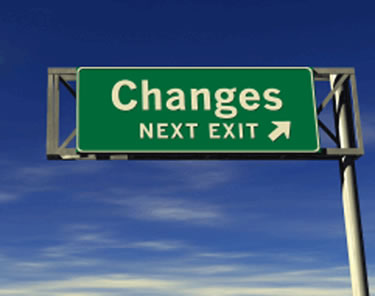
In a rare bout of procrastination-induced TV hypnosis, I recently lounged through half an episode of Cougar Town, until I located the remote. During those 12 minutes of mindless viewing, a brief exchange between Courtney Cox and Josh Hopkins redeemed the other lost 11.5 minutes of my life.
Cox returned from the gym to find her attractive, single neighbor outside and enthusiastically initiated a conversation:
- Cox: "I just finished three back-to-back spinning classes! Two to burn off that sticky bun I ate last night and one for the frosting I licked off the the frying pan this morning."
- Hopkins (the voice of reason and clearly not a sucker for sweets): "Why not just skip the sticky bun?"
- Cox: "Well, now that's just crazy talk!"
Nonetheless, her believably desperate character momentarily excused some of my own neurotic behavior. She did so shamelessly while looking fabulous to boot! I was willing to overlook the unlikelihood of the situation to savor that validation.


Surround me in greasy onion rings or cheesy Doritos and I'm likely to die of starvation. But dangle a caramel-covered carrot, a box of Godiva chocolates, or, sadly, even a frosted sticky bun and I'll offer my pinky toe in exchange (since I need my fingers for typing and dipping in cake batter) and promise my firstborn for the prospect of another fix.
The crazed mind plays a plethora of creative tricks on the unsuspecting body to justify its irrational actions. Heroin addicts are said to lie, cheat and steal for their habit. I've only stood up dates, blown off friends and hidden evidence for mine.
Ok, I have also consumed entire cartons of ice cream in one sitting, deeming the binge "healthy" by sprinkling ground flax seed and protein powder on top.
Are these any worse than the "hitting rock bottom" tales shared at an AA meeting?

Whenever my teetotaling mother sees me ordering a cocktail or opening a bottle of wine, she regurgitates a line stripped from one of her nutrition books: "drinking alcohol is just mainlining sugar into your system."
She offers this gem in a more informative rather than preachy fashion, but it still pushes a button accessible only to immediate family members (and the occasional conservative political pundit).


But at least her 'health' mantra offers an explanation for the comparable hangovers. The worst one I've suffered thus far resulted from a batch of cookie dough, not an excess of Captain Morgan mixers or even boxed wine.
In response to my mother's rehearsed comment, I usually smile and obnoxiously pun, "sweet!" as I try to high-five her in vain. Then I chase my brownie sundae with a White Russian, or some similar sweet variation, and joke about hooking myself up to a Kahlua IV.
More often than not, she reacts with a defeated look which silently whimpers, "where did I go wrong?" and proceeds to polish off a box of Triscuits or a buttered baguette.
To each her own vice; everyone has a crutch.
She may be right, though. I have noticed that the fewer bottles of pumpkin ale my boyfriend chugs, the more slices of pumpkin pie he gobbles.


Addiction switching is an interesting phenomenon. Rather than going away altogether, obsessions are simply replaced with others. This is a simpler alternative to hacking at the root of one's thinking or changing the basic behavior.
- I have countless friends who have quit smoking only to gorge themselves and gain 30 lbs.
- Or, conversely, friends who have lost weight after taking up smoking.
- Someone actually reported to have started smoking crack to quit drinking.
- Meg Ryan's character started smoking while in alcohol rehab in When a Man Loves a Woman.
- Robert Downey Jr. swapped drugs for working out, evident in his Ironman role.
However, such will power has required a replacement: blogging. It is more cost effective, has fewer empty calories and the hangovers aren't nearly as debilitating.

It even allows me to multi-task...














